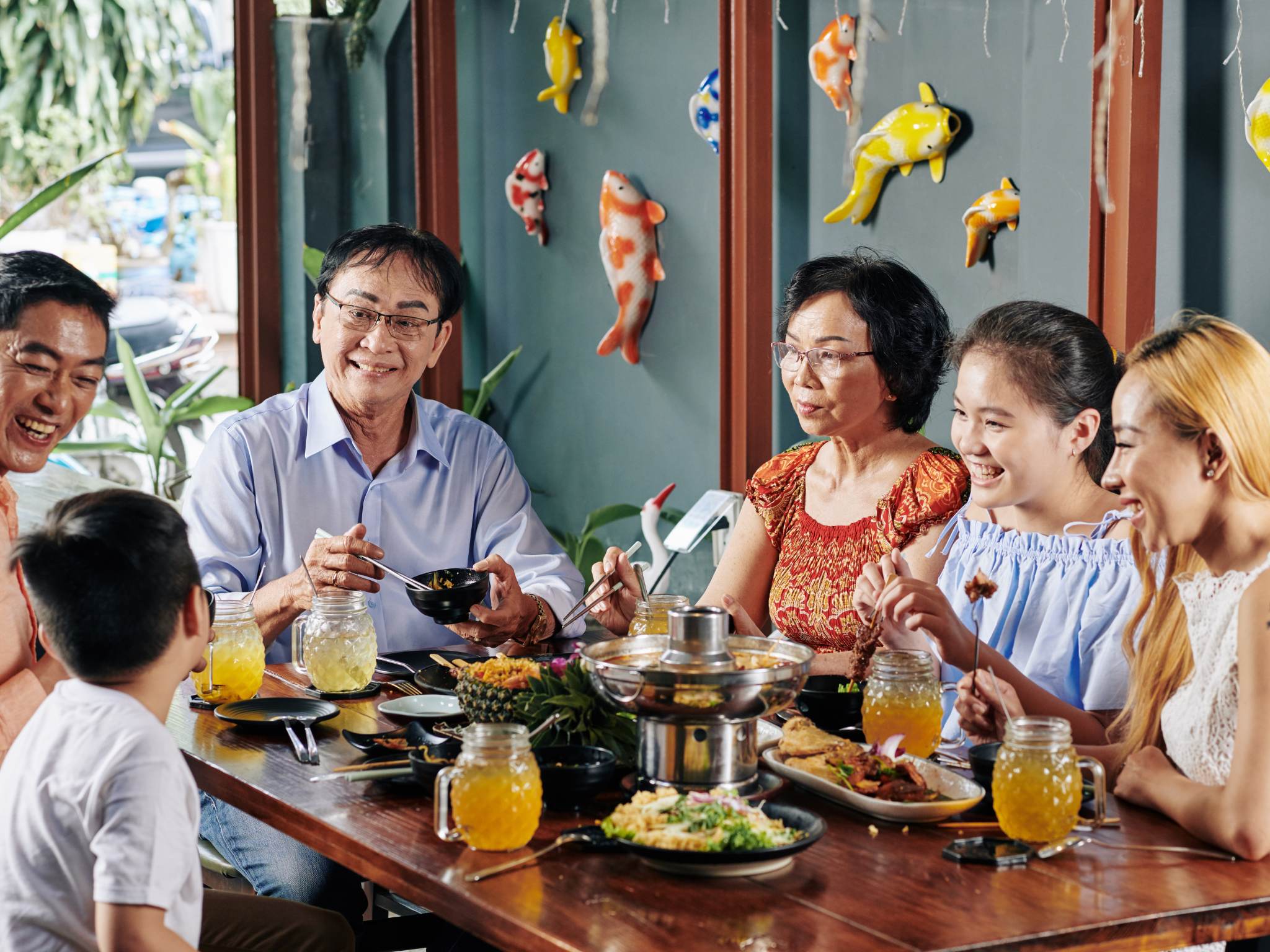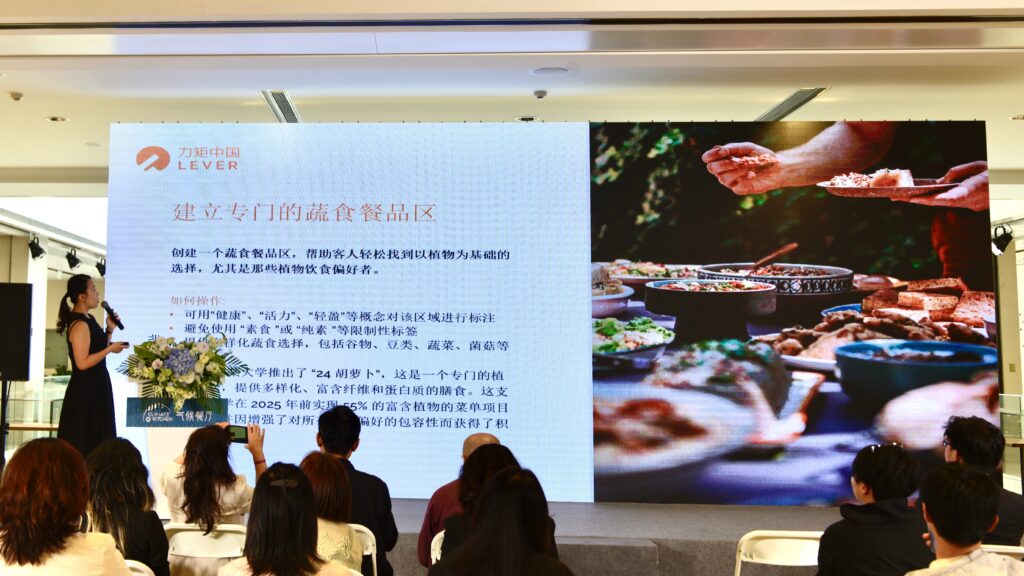
Some of the largest hotel companies in China have received an A+ rating for plant-based policy commitments in a scorecard released at Shanghai Climate Week.
Marriott Greater China, Langham Hospitality, IHG Hotels & Resorts and eight other leading hotel operators are leading the industry’s protein transition in China, according to a new report.
These hotel groups have received an A+ score for their corporate policies on increasing plant-based food offerings, the highest possible rating on the scorecard compiled by Lever China.
The Shanghai-based consultancy firm, part of the Lever Foundation network, presented the scorecard at Shanghai Climate Week, where hospitality executives and sustainability leaders committed to adapting a plant-based framework beyond hotels, and across corporate and campus catering, among other operations.
It comes at a time when China is eating more protein per capita than the US, and mostly from plants. Both national and local governments are promoting plant-based and novel foods, since projections show meat intake in the country – already the leading meat consumer – is set to grow further.

Which hotels are leading China’s plant-based shift?
In the China Hospitality Industry Plant-Based Foods Scorecard, Lever Foods analysed hospitality companies’ food policy goals, whether they had set precise timelines and premier targets for protein transition, and if they’re engaging in action steps.
To bag an A+ score, a company is required to have publicly set a timebound target to make at least 30% of all meals plant-based or increase the percentage of non-animal foods served per guest by at least 20%.
In addition, hotel operators must be engaging in at least three action steps, which include making a sizeable portion of the menu plant-based by default in an F&B outlet at each hotel, introducing at least 10 new vegan recipes every year, offering a minimum of two professional development courses annually, and using signage or phrasing to encourage diners to choose meat alternatives.
Accor Hotels and Langham have pledged to make 50% of their menu plant-based by 2030 across all their global locations, while Orange Hotel and OctaveHotels are leading the immediate charge in Greater China, committing to a 30% transition to animal-free foods by this year.
IHG, Marriott, Dossen Group and Yee Hotel (a subsidiary of the White Swan Hotel Group), meanwhile, are aiming to make 30% of their menus vegan by 2025. Same goes for Ahn Lan Resorts & Hotels, Artyzen Hospitality Group’s Macau and Hengqin locations, Baiyun Hotel (all by 2026), and Ascott’s South China operation (by 2028).
“Plant-forward menu strategies are quickly becoming a hallmark of industry leadership in the hospitality sector, delivering measurable benefits to both business operations and broader societal goals of public health and environmental sustainability,” said Cecilia Zhao, sustainability head at Lever China.

Plant-based eating on the rise in China
The commitments by the likes of IHG, Dossen and Orange Hotels have all come in collaboration with Lever China, which has been helping the industry ramp up its protein transition efforts.
Polling shows that almost all (98%) Chinese consumers would eat more plants if they were informed about the benefits of a vegan diet, just as research suggests that half of all protein consumption in the country must come from alternative sources by 2060, if the company is to decarbonise effectively.
Lever China has additionally signed a strategic partnership with the Low-Carbon Hotel Development Institute, a state-affiliated organisation, to boost the adoption of plant-based foods in the country’s hotel industry.
The Chinese government has been promoting plant-based foods, with the Ministry of Agriculture and Rural Affairs recently publishing a briefing with a call to action to “develop new food resources such as plant-based meat”. President Xi Jinping has also called for a Grand Food Vision that includes plant-based and microbial protein sources.
In China’s most populous region, the Guangdong province, local officials are planning to build a biomanufacturing hub to pioneer tech breakthroughs in plant-based, microbial and cultivated proteins.
The Lever Foundation, meanwhile, recently announced that it had supported 175 food businesses across Asia to commit to responsible sourcing, with 17 shifts towards improved production systems and five pledges to significantly ramp up the use of plant-based foods in the last year alone.
According to its website, it has helped shift 29 million corporate meals to plant-based and prevented 82 million kgs of CO2e from businesses each year.
Its work in China speaks to consumer demand, with 88% of local consumers holding hospitality and retail businesses responsible for managing the health and sustainability of their food supply chains, according to a recent survey. Another 77%, meanwhile, are more likely to visit establishments with specific policy goals to increase the use of plant-based food.
The post These 11 Hotels in China Are Leading the Way with Plant-Based Food Policies appeared first on Green Queen.
This post was originally published on Green Queen.